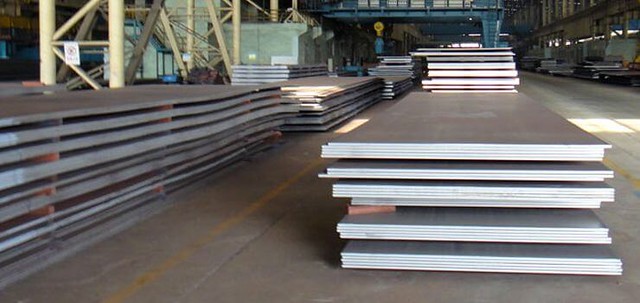Alloy Steel Plate: The Essential Gu alloy steel plate ide
Introduction:
In the world of industrial manufacturing, alloy steel plates play a crucial role. These plates are used in various applications due to their exceptional strength, durability, and versatility. This article aims to provide an in-depth understanding of alloy steel plates, including their manufacturing process, characteristics, advantages, usage methods, how to select the right product and conclude with key takeaways.
Manufacturing Process:
Alloy steel plate production involves several essential steps. It starts by carefully selecting the high-quality raw materials needed for the specific alloy composition. The chosen alloys are then melted together at extremely high temperatures using a Fusion steel sheet dvanced fusion techniques such as electric arc furnaces or induction heating. Once molten, the liquid metal is poured into molds or rolled into sheets to form the desired plate shape. After solidification and cooling processes are completed, the plates undergo precise finishing treatments like heat treatment and surface coating for enhanced prop carbon steel manufacturer erties.
Characteristics:
Alloy steel plates possess unique characteristics that make them highly sought after in numerous industries. Their exceptional strength-to-weight ratio enables them to withs alloy steel plate tand heavy loads without sacrificing structural integrity.
Moreover,a variety of alloying elements enhance their corrosion resistance even under harsh environmental conditions.Magnetic properties can also be manipulated depending on application requirements.Furthermore,the abilityto retain toughness at low temperatures sets these plates apart from regular carbon steels.
Advantages:
There are several advantages of utilizing alloy steel plates over alloy steel plate other alternatives.Firstly,the increased strength promotes weight reduction,making it ideal for applications where minimizing mass is crucial.Secondly,due to its excellent mechanical properties,it offers improved performance under extreme conditions.Thirdly,the added corrosion resistance increases lifespan,reducing maintenance co Alloy steel sheet sts.Moreover,specialized coatings can further enhance abrasion resistance,resultingin extendedproduct functionality.Last but not least,is cost-effectiveness as it eliminates frequent repairs or replacements frequently associated with less durable materials.
Usage Methods:
The alloy steel plate abundant range of applications for alloy steel plates highlights their versatility. These plates find extensive use in industries such as construction, aerospace, automotive, energy, and manufacturing sectors. Its structural integrity and resistance to wear make it perfect for building bridges,tanks,and pipelines.This material’s exemplary performance under high temperatures carbon steel manufacturer renders them ideal for power plants or offshore oil rigs.Additionally,the excellent electrical conductivity of certain alloys allows the creation of efficient electrical transformers.
Selecting the Right Product:
Choosing the appropriate alloy steel plate requires careful consideration of specific project requirements.Firstly,determine the necessary strength and toughness based on expected loads.Secondly,factor in the corrosive environment conditions before finalizing against corrosion-resis

tant alloys.Consider additional properties like thermal conductivity,magnetic permeability,and electrical resistivity.Finally,budgetary constraints should be considered when selecting coatings or finishes.
Conclusion Mixed metal sheet :
Alloy steel plates are a critical component in various industrial applications due to their exceptional strength,durability,and versatility.Their unique manufacturing process results in plates with outstanding mechanical properties.After thoroughly understanding its characteristics and advantages,it is evident that these plates offer superior performance over conventional carbon steels.Depending on specific project needs,a wide range of alloy compositions can be selected.Ultimately,this versatility enables engineers to tailor solutions while simultaneously optimizi

ng cost-effectiveness.Choosing an alloy steel plate ensures long-lasting structures with minimal maintenance requirements.
